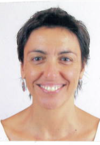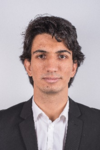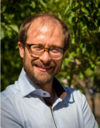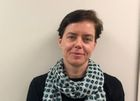Webinar on Powering WASH : Renewable Energy for Water Supply in Humanitarian Settings
This webinar addresses the need and relevance of reliable renewable energy for Water, Sanitation and Hygiene (WASH) in humanitarian settings. Oxfam will provide an overview on solar-powered water pumping followed by two case studies from ICRC and UNICEF on solar pumping projects for powering WASH in South Sudan and Yemen. ReNewGies will then present a Rapid Feasibility Assessment Tool developed on behalf of the UNHCR. This webinar also briefly discusses the impact of COVID-19 on the provision and sustainability of WASH services.
Presentations
Q&A
Speakers
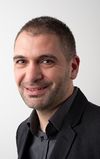
Marco Albertini, International Committee of the Red Cross (ICRC)
With a background in Environmental Engineering and Business Administration, Marco has 15 years of international experience in team coordination and project management in the fields of water and power supply and rehabilitation of infrastructures for essential services.
He joined the ICRC in 2005 and undertook field missions coordinating humanitarian operations in Ethiopia, Pakistan, Palestine, Mauritania, Philippines, Lebanon, South Sudan. He is currently the Knowledge Manger for the ICRC Water and Habitat Unit at Geneva HQ.
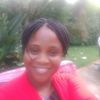
Melisa Bonzo, International Committee of the Red Cross (ICRC) Melisa has worked for the International Committee of the Red Cross for 10 years, working in Zimbabwe, Nigeria, South Sudan and now Syria. She has worked on water supply , sanitation and shelter projects in Internally Displaced People (IDP) camps, Areas of return, Places of Detention (PoD)s and Health Facilities. Melisa was part of the ICRC team that was involved in the of large solar water yards in Juba city to increase access to water supply and WASH services.
She is a holder of a Diploma in Civil Engineering Water Supply, Post Graduate Diploma in Water and Sanitation and a final year Bachelor of Administration – Public student.
Silvia Gaya, UNICEF
Silvia Gaya is an Engineer with an advanced degree in Politics and International Relations. Silvia is currently the Senior Advisor on Water and Environment for UNICEF Headquarters and has worked for UNICEF for more than 19 years. Silvia has been in this role since mid-2018 and leads UNICEF’s global efforts on Water (access, safety, sustainability) and Climate Resilience in WASH programmes, (climate resilience, use of solar energy in WASH, water scarcity), in addition to leading UNICEF’s global work on WASH in Healthcare Facilities and WASH in Schools.
Silvia has worked in development and emergency contexts, having worked in seven different countries including high profile emergencies such as Eastern Chad (Darfur conflict) and Haiti (immediately after the earthquake). Prior to that, Silvia worked for 10 years in the private sector, working in different countries, primarily in Europe, and has worked for several years with civil society in Catalunya as a volunteer in youth programmes.
Aymen Jabberi, RENEWGIES
Project and Study Engineer
Expertise in energy production and efficiency
As a young engineer, always keen on making use of my skills and my training in a useful way to people in need.
Committed to providing opportunities for access to basic needs like water and energy in order to reduce social inequalities.
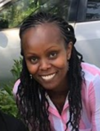
Asenath Kiprono, Oxfam
Asenath is a Water and Solar specialist working with Oxfam, managing the Global Solar and Water initiative, a project that supports agencies towards adoption of quality solar powered water supply solutions through field assessments, technical workshops as well as development of knowledge material and tools. She holds a bachelor’s degree in Civil Engineering from the University of Nairobi and previously worked in the private sector developing and implementing suitable water supply and energy solutions for a wide range of stakeholders.
Jean-Baptiste Sivery, RENEWGIES
President and Co-founder of ReNewGies
Manager, Senior Engineer
Adept of the humanist philosophy, keen on dedicating a great part of my spare time to philanthropy basing my actions on skill-based sponsorship which I learn in my professional activities
Fiona Ward, UNICEF
WASH Specialist (Water, Sanitation and Hygiene) working in UNICEF’s Programme Division, in New York HQ. Fiona works in the Water Team and has a focus on Water Scarcity and Climate Change, and how these will impact UNICEF’s programmes, as well as supporting WASH programmes on how to scale-up solar programming to make programmes more resilient. Fiona has a background in Hydrogeology and has worked in Nigeria, Ghana, Sudan, Kenya, Somalia (Kenya support centre), Haiti, Bangladesh and most recently in Jordan.
Resources
- COVID-19 and WASH - Mitigating the socio-economic impacts on the Water, Sanitation and Hygiene (WASH) Sector
- Solar Pumping Toolkit - The Global Solar & Water Initiative
Global Solar and Water Initiative (GLOSWI) Solar Pumping Resources
- Global Solar and Water Initiative (2018). “Solar Water Pumping Miniguide.
- Global Solar and Water Initiative (2018). Country Briefing Case study of Bidibidi Refugee Settlement, Uganda.
- EED Advisory Ltd. (2018). “Evaluation of the sustainability of solar powered water supply systems in Kenya.” EED Advisory Ltd. Nairobi, KE.
- Global Solar and Water Initiative (2018).Emergency Solar Pumping Kits. Global Solar and Water Initiative.
- Global Solar and Water Initiative (2018). Cost analysis Generator vs Hybrid, Cost analysis Generator vs Solar, Technical Briefing - Cost Analysis.
- Global Solar and Water Initiative (2018). “Criteria for Selection of Quality Solar Pumping Products & Services” and “Solar pumping bidding template”.
- Global Solar and Water Initiative (2018). “Physical Installation checklist” and “Operation & Maintenance kit”.
GLOSWI visit reports
- Global Solar and Water Initiative (2016). “Visit Report to Assess Feasibility for Solarisation of Existing Water Points in Asosa and Shire Refugee Camps in Ethiopia, 14 th to 21 st December 2016.”
- Global Solar and Water Initiative (2017). “Visit Report – Refugee and IDP Camps in Maban, Yida and Bentiu – South Sudan, 3 rd to 20 th July 2017.”
- Global Solar and Water Initiative (2017). “Visit Report – Solar and Water Initiative IDP settlements in Darfur, Sudan – 20 th February to 18 th March 2017.”
- Global Solar and Water Initiative (2017). “Visit Report – Solar and Water Initiative. Refugee settlements in Northern Uganda. 10th January to 6th February 2017.”
- Global Solar and Water Initiative (2017). “Visit Report to Borno State Nigeria, 12th – 19th June 2017.”
- Global Solar and Water Initiative (2019). “Visit Report to Somalia Region Ethiopia, 17th Feb to 2nd Mar 2019.
- Global Solar and Water Initiative (2019). “Visit Report to Borno State Nigeria, 6th to 19th April 2019.”
- Global Solar and Water Initiative (2019). “Visit Report to Northern Kenya, 23rd to 26th April 2019."
- Global Solar and Water Initiative (2019). “Visit Report to Kurdistan Region of Iraq, 27th July to 10th August 2019.”
Other resources
- World Bank (2018). “Solar Pumping: The Basics.” World Bank, Washington, DC.
- Practica Foundation (2018). “Solar Pumping for Village Water Supply Systems.” Practica Foundation.
- Bamford, E. and Zadi, D. (2016). “Scaling up solar powered water supply systems: a review of experiences.” UNICCEF, New York, NY.
- Allouhi, A. et al. (2019). PV water pumping systems for domestic uses in remote areas: Sizing process, simulation and economic evaluation.
- Global Sustainable Energy Solutions (2019). “Solar Water Pumping Systems: System Design, Selection and Installation Guidelines.” Pacific Power Association and Sustainable Energy Industry Association of the Pacific Islands.

